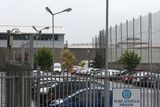Measles gaining ground in Ireland as eleventh patient is confirmed with 14 more possible cases under investigation
Chief Medical Officer discusses the importance of the MMR vaccine in preventing measles
Measles is gaining ground in Ireland, with another confirmed case bringing the total to 11 so far this year.
There has been one outbreak of measles here where the infection was passed on, which involved four people.
It means that measles cases are not just “imported” from abroad but have spread within Ireland.
Another 14 probable and possible cases are being investigated, with swabs sent to laboratories for confirmation.
The weekly infectious disease report shows that two cases were confirmed last week.
Among the confirmed cases and those under investigation last week, two were in the east, two in the midlands, one in the north-east, one in the south and two in the south-east.
Five of these cases were in children under four, three in children aged five to nine, one in a teenager and one in a person aged 45 to 54. Six were in males and four in females.
The incubation period from exposure to early symptoms averages 11 to 12 days. The time from exposure to rash onset averages 14 days, with a range of seven to 21 days.
Measles usually starts with cold-like symptoms, followed by a rash a few days later. Some people may also get small spots in their mouth.
Read more
Earlier this year, cases involved a man in his 40s from Westmeath who died after contracting measles abroad. Last month two air passengers were found to have measles and there was another case involving a person in the west.
The measles, mumps and rubella vaccine (MMR) offers protection against measles, as well as prior infection. However, vaccination levels here are below 90pc when they should be at 95pc.
There is particular concern for people with lowered immune systems, pregnant women and babies under 12 months.
The HSE is currently rolling out a measles vaccination programme which is delivered by GPs and also its own teams.
MMR vaccines are available free of charge from GPs to all groups, but primarily to those under 18 years, and from HSE community clinics for everyone eligible who is aged five and over.
A list of vaccination clinics is available on the HSE website. It is possible to book an appointment and walk-in appointments are also available.
Additionally, the HSE is providing clinics for specific groups including students and young people in education settings, underserved groups including refugees, applicants and other minority groups.
Join the Irish Independent WhatsApp channel
Stay up to date with all the latest news










